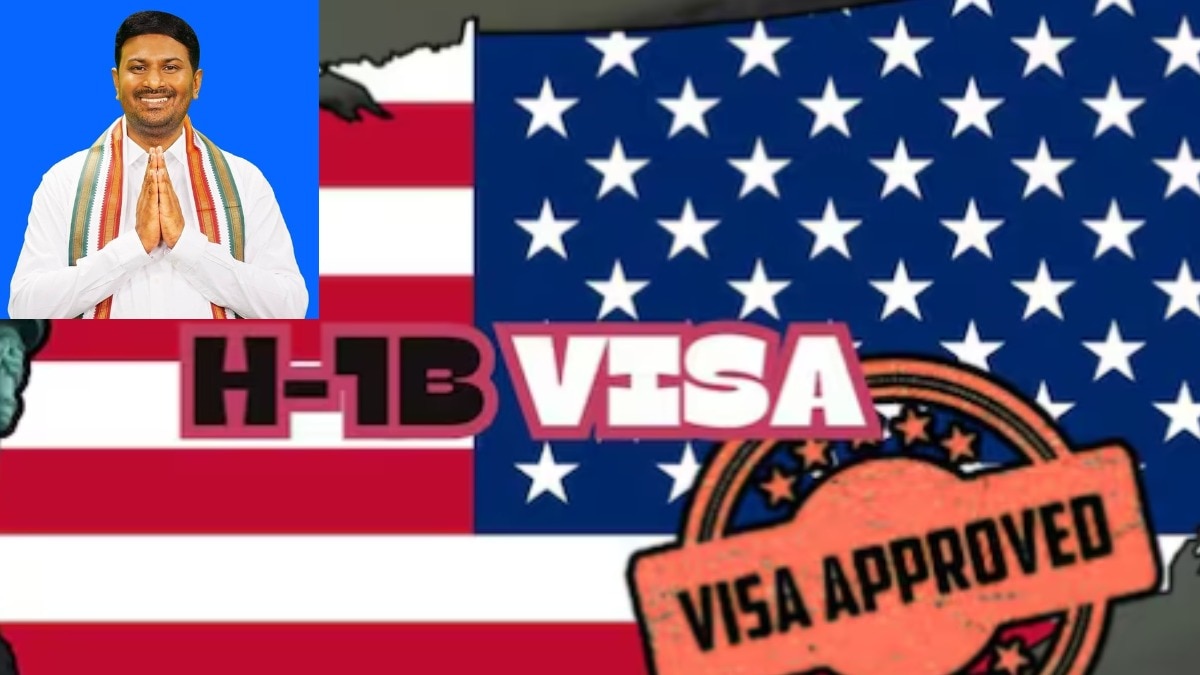2024-08-01 13:25:23
Kandi Srinivasa Reddy, a Congress leader from the Adilabad constituency in Telangana, has come under scrutiny for allegedly manipulating the H-1B visa lottery system in the United States. Reddy, who founded Cloud Big Data Technologies LLC in 2013, allegedly exploited the lottery system to secure over 300 H-1B visas since 2020.
A self-described “common farmer’s child”, Reddy earned a master’s degree in the US and worked as a tech consultant, eventually settling near Dallas.
Reddy’s firm focused on finding tech workers needing H-1B visas to stay in or move to the US, offering recruiters up to $8,000 per head, reported Bloomberg.
After securing an H-1B visa, Reddy’s company would place these workers on contract with companies like Meta Platforms Inc and HSBC Holdings Plc.
According to their ads, the company took 20% to 30% of the workers’ pay, which could total $15,000 or more per year for each worker.
STAFFING FIRMS FRAUD FOR H-1B VISA
Many staffing firms, often described as “body shops”, function more like visa brokers than employers.
They charge workers for visa applications, submit false information, withhold pay, and violate labour laws, according to current and former staffing firm workers told Bloomberg.
Complaining about these practices can put workers’ visas at risk.
Most criminal charges for H-1B fraud in the past decade have been against staffing firms, although Reddy’s companies were not among them.
The ITServe Alliance, representing staffing firms, defends these companies as essential to the US economy.
“The staffing companies are really just the necessary flex-power of the IT industry,” said Jonathan Wasden, the group’s general counsel. “Without them, you lose a lot of the dynamic nature of American business and the tech industry.”
During the Trump administration, the US Citizenship and Immigration Services (USCIS) proposed changes to the H-1B lottery process, simplifying the initial entry to a short online form and a $10 fee.
This led to a surge in multiple entries for the same workers by different companies, including Reddy’s, which significantly increased their chances of selection.
In the 2020 lottery, Reddy’s Cloud Big Data submitted 288 employee names, while other companies he controlled submitted many of the same names, totalling over 3,000 entries. These efforts have secured over 300 H-1B visas since 2020, with a total of 54 visas granted in 2020 alone, far more than any previous year.
REDDY’S CLAIMS AND LEGAL DEFENCE
In a short phone interview with Bloomberg, Reddy claimed he was just a registered agent for the companies and didn’t play a big role in them.
However, he has made different claims elsewhere. He told Texas authorities that he is the chief executive officer (CEO) of Cloud Big Data.
Documents filed with election officials in India and business records in the US indicate that he or his wife own or control all the companies, reported Bloomberg.
Additionally, during a campaign for public office in India last year, Reddy described himself as the founder and CEO of several staffing companies and claimed responsibility for employing hundreds of people.
Lucas Garritson, Reddy’s lawyer, argued that USCIS hadn’t followed proper procedures to prohibit the activity and lacked proof that Reddy’s companies broke the rules.
Despite the allegations, Reddy appears to have prospered, setting up a foundation to help farmers in India and starting his own media outlet.
Reddy also ran for a legislative seat from the Adilabad constituency in India but lost.
USCIS CHANGED H-1B LOTTERY SYSTEM TO PREVENT FRAUD
The USCIS has since changed the lottery system to prevent multiple registrations by selecting unique individuals rather than entries from employers. This led to a decline in duplicate applications, but staffing firms continue to game the system by submitting names without having real jobs lined up.
In 2022, Indians secured 77% of the 320,000 approved H-1B visas. This year, the USCIS anticipates around 350,000 applicants, a decrease attributed to new measures against fraud.
Last year, over 400,000 out of 759,000 registrations were duplicated.
By 2023, many other staffing firms had discovered the trick and overwhelmed the system. More than half of all lottery entries were for workers whose names had been entered multiple times.
The cheating paid off. Companies that used this multiple registration strategy secured around 40,000 H-1B visas over four years, according to Bloomberg estimates.
H1b visa, h1b visa news, cloud big data technologies, cloud big data engineer, cloud big data technologies h1b, largest h1b employers, h1b visa scam, uscis h1b news, h1b lottery, h1b visa lottery system
Source link
![]()
